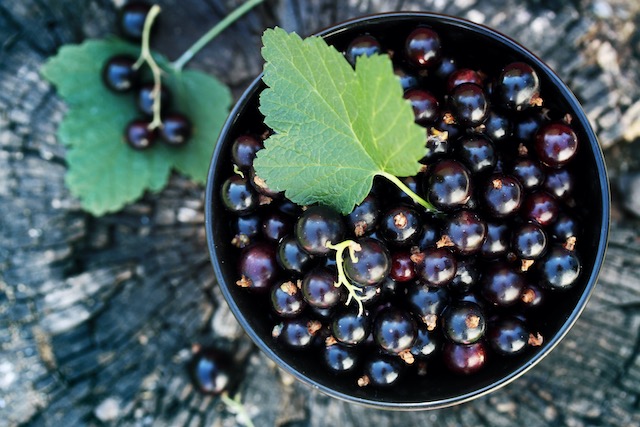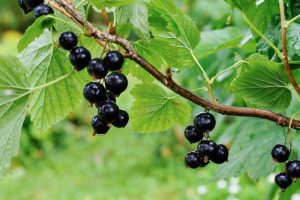Black Currants
 Black Currants!
Black Currants!
In this article you will learn three unsung benefits of black currants.
Black currants taken over 30 days have been found to decrease an important risk factor for colon cancer by modulating the bacteria in the large intestine. There is an enzyme produced by some opportunistic bacteria called Beta Glucuronidase. Beta Glucoronidase breaks down complex carbohydrates which of course is what all bacteria want to eat in the end. This enzyme has been shown to have links to colon cancer and presence of this enzyme has been shown to increase the risk of colon cancer. Beta glucoronidase activity can be 1.5 to 12 times higher in colon cancer bacteria than in “healthy” colonic bacteria.
What does this mean? There are opportunistic bacteria that can become overgrown for reasons of diet and exposure. These bacteria produce something that has been causally linked to colon cancer. Eating blackcurrant extract over 30 days was shown to increase the numbers of lactobacillus and bifidobacteria in the large intestine and decrease the opportunistic bacteria. This lowered the levels of Beta Glucuronidase and over time could reduce the risk of developing colon cancer.
The implications of this are more than the reduction of risk factors for certain types of cancers though. Having the right amount of beneficial bacteria in the large intestine can also enable intestinal repair, improve fatty acid balance and nutrient absorption among many other things.
Another constituent of black currants, Cassis Polysaccharides have been found to reduce the symptoms of allergies! This is very exciting and also slightly confusing because the wild black currants have actually been shown to induce allergies in some. Plants are weird. However if black currants are not something you are sensitive to and if you wash off the pollen from grasses and trees pollinating in the summer, you could have a potent allergy ally in currants.

This antihistamine effect was shown in several studies
Anthocyanin, an antioxidant (a flavonoid) derived from black currants was used in a 12 week double-blind study in which it was found to increase insulin sensitivity and improve markers of non-alcoholic fatty liver disease. This is good news, a fruit that can help to increase insulin sensitivity and decrease insulin resistance! You may recall that blueberries have similar effects and I hope you have the chance to enjoy both together.
See this week’s recipe HERE for a fermented syrup that you can make out of any berry including some black currants. With their ability to selectively increase bifidobacteria in the human digestive tract and reduce insulin resistance it will be a winner.






Hello Step, I have loads of these berries in my garden, but over here they are called Elderberries, is this the same thing? People also make cough syrup with the flowers in the spring. Your picture looks more like elderberries than black currents? Thanks!
You are right I think the picture is questionable! But yes I was referring to black currants this week… although next week is all about elderberries!! I love those too!! 🙂